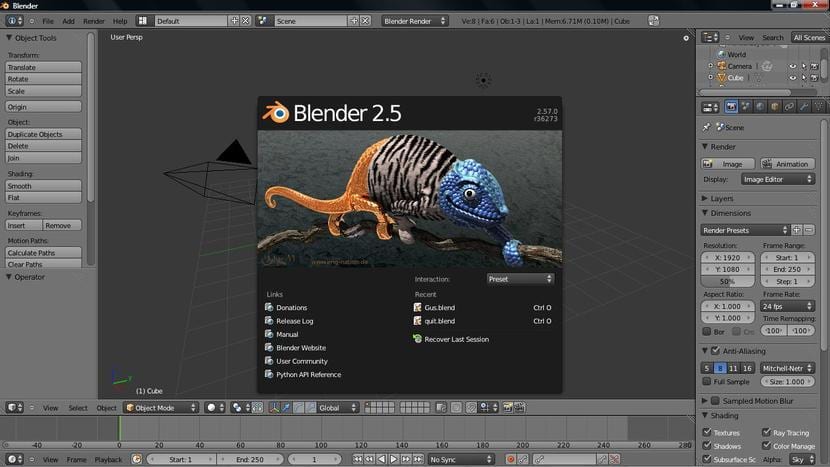
Years ago, many developers and entrepreneurs related to Software were dedicated to saying that Free Software did not offer the same as proprietary software and on top of that it was less powerful or functional than proprietary software. It is totally false: there are useless proprietary software programs compared to their Free Software counterpart and vice versa.
A good example of all this has been and is Blender. Blender is a Free Software program that has been used for various projects with a better result than that obtained by proprietary software.
Several films in the Marvel Comics saga as well as countless projects related to the 3D scene and short films are good examples of the power of Blender. Blender allows us to create images and scenes in 3D, we have been talking about it for a long time here. But today we are going to tell you how to install this program on our Gnu / Linux distribution.
Blender installation
If we use Debian or any derivative of these we have to write in the terminal:
sudo apt-get get install blender
If we use Arch Linux or any derivative we have to write:
pacman -S blender
If, on the contrary, we use SUSE, Red Hat or any derivative of these, we have to write:
yum -y install blender
dnf install blender
If, on the other hand, we do not want to have the version of our distribution or the official repositories do not have blender (something rare), we can get it through the official website where we will find the compressed package with the program as well as the source code of Blender.
As you can see, Blender is a Free Software program quite easy to get, install in our distribution and quite powerful, now we just have to learn how to use it to get results as good as those demonstrated in the movies of Thor, The Avengers or Spiderman.
Hello:
If we use opensuse it will be sudo zypper in blender
If it were gentoo or funto I imagine that as root emerges blender
If it were sabayon sudo equo install blender
Greetings.
Hello, thanks for your contribution. Wouldn't a "clear" be left over in the commands to install on Debian or derivatives?
Thank you